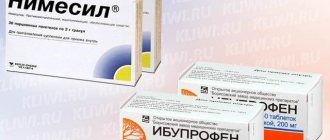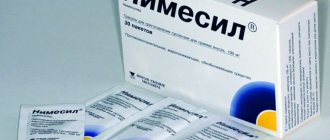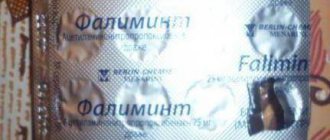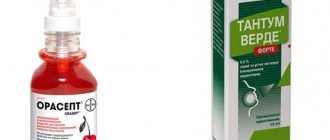A purulent formation on the gum is popularly called gumboil. Very often it is not taken seriously, but it is not just a small swelling that will go away on its own. Flux is an ontogenic periostitis, a complex infectious disease that affects the periosteum and jaw bone. Periostitis occurs quite often, but without adequate treatment it is fraught with serious complications, including blood poisoning.
It is almost impossible to cure gumboil without the help of a dentist. The treatment program includes therapeutic, physiotherapeutic, and surgical methods.
Have you noticed purulent formations on your gums and swelling of your cheeks? Do you have acute pain in your tooth or gum? Come for a consultation with a dentist at our clinic. Timely treatment of flux allows you to get rid of the problem within about 7 days.
Why does flux form?
Dental diseases are always the precursor to gumboil. Most often lead to suppuration:
- Untreated caries. If caries is not treated, the inflammatory process begins to spread to other tissues. Pulpitis and periodontitis gradually develop.
- Mechanical injury. Injury can lead to more than just crown destruction. Very often, an inflammatory process develops in injured tooth or gum tissues. Without treatment, purulent processes develop and gumboil forms.
- Periodontitis. In more than half of the cases, gumboil develops precisely against the background of periodontitis, as its complication. This is due to the fact that purulent processes from periodontal pockets can spread to the neck of the tooth.
- Poorly sealed canals. Before filling, the canals must be completely cleaned and the filling material must completely fill the cavity. If at least one of the conditions is violated, the infection from the canal spreads to other tissues.
Instructions for Nimesil
Undesirable side effects can be minimized by using the minimum effective dose of the drug for the shortest possible short course.
Nimesil® should be used with caution in patients with a history of gastrointestinal diseases (ulcerative colitis, Crohn's disease), since exacerbation of these diseases is possible.
The risk of gastrointestinal bleeding, ulceration or perforation of an ulcer increases with increasing doses of NSAIDs in patients with a history of ulcers, especially those complicated by bleeding or perforation, and in elderly patients, so treatment should be started at the lowest possible dose. Patients receiving drugs that reduce blood clotting or suppress platelet aggregation also increase the risk of gastrointestinal bleeding. If gastrointestinal bleeding or ulcers occur in patients taking Nimesil®, treatment with the drug should be discontinued.
Since Nimesil® is partially excreted by the kidneys, its dosage for patients with impaired renal function should be reduced depending on the level of urination.
There is evidence of rare cases of liver reactions. If signs of liver damage appear (itching, yellowing of the skin, nausea, vomiting, abdominal pain, dark urine, increased activity of liver transaminases), you should stop taking the drug and consult your doctor.
Despite the rarity of visual impairment in patients taking nimesulide concomitantly with other NSAIDs, treatment should be stopped immediately. If any visual disturbance occurs, the patient should be examined by an ophthalmologist.
The drug can cause fluid retention in tissues, so patients with high blood pressure and cardiac dysfunction should use Nimesil® with extreme caution.
In patients with renal or heart failure, Nimesil® should be used with caution, as renal function may deteriorate. If the condition worsens, treatment with Nimesil® should be discontinued.
Clinical studies and epidemiological data suggest that NSAIDs, especially at high doses and with long-term use, may lead to a small risk of myocardial infarction or stroke. There is insufficient data to exclude the risk of such events when using nimesulide.
The drug contains sucrose, this should be taken into account by patients suffering from diabetes mellitus (0.15–0.18 XE per 100 mg of the drug) and those on a low-calorie diet. Nimesil® is not recommended for use in patients with fructose intolerance, glucose-galactose malabsorption or sucrose-isomaltose deficiency.
If signs of a cold or acute respiratory viral infection occur during treatment with Nimesil®, the drug should be discontinued.
Nimesil® should not be used simultaneously with other NSAIDs.
Nimesulide can change the properties of platelets, so caution must be exercised when using the drug in people with hemorrhagic diathesis, however, the drug does not replace the preventive effect of acetylsalicylic acid in cardiovascular diseases.
Elderly patients are particularly susceptible to adverse reactions to NSAIDs, incl. the risk of gastrointestinal bleeding and perforations that threaten the patient’s life, deterioration of kidney, liver and heart function. When taking Nimesil® for this category of patients, proper clinical monitoring is necessary.
There is evidence of the occurrence in rare cases of skin reactions (such as exfoliative dermatitis, Stevens-Johnson syndrome, toxic epidermal necrolysis) to nimesulide as well as to other NSAIDs. At the first signs of a skin rash, damage to the mucous membranes or other signs of an allergic reaction, Nimesil® should be stopped.
The effect of the drug on the ability to drive vehicles and operate machinery.
The effect of the drug Nimesil® on the ability to drive vehicles and operate machinery has not been studied, therefore, during treatment with the drug Nimesil®, care should be taken when driving vehicles and engaging in potentially hazardous activities that require increased concentration and speed of psychomotor reactions.
When do you need dental help?
Flux has pronounced symptoms. The main one is the appearance of an abscess on the gum next to the diseased tooth. The abscess develops gradually. At first, the gums swell a little and a small red or whitish bump is noticeable on it. After some time, a noticeable fistulous tract forms on the lump, from which pus flows. The development of periostitis is accompanied by other symptoms:
- Swelling and swelling of the gums, lips, cheeks. Sometimes they can be so large that facial features are distorted.
- Severe cutting pain in the tooth area. Innervates the temporal region, orbits.
- The diseased tooth begins to become very loose, even if there was no mobility before or it was insignificant.
Since flux is caused by infection, it is characterized by symptoms that appear during any infectious process. The patient feels unwell, his temperature rises, his head hurts, and weakness appears. Lymph nodes on the head and neck become enlarged.
Any of these symptoms is a reason to consult a doctor. The more advanced the case, the higher the risk of complications. This disease is often accompanied by other pathological processes. For example, a cyst may form in tissues affected by infection.
Nimesil®
Undesirable side effects can be minimized by using the drug in the minimum effective dose with the minimum duration of use necessary to relieve pain.
There is evidence of very rare cases of serious reactions from the liver, including cases of death, associated with the use of nimesulide-containing drugs. If symptoms similar to signs of liver damage appear (anorexia, itching, yellowing of the skin, nausea, vomiting, abdominal pain, dark urine, increased activity of liver transaminases), you should immediately stop using the drug Nimesil® and consult a doctor. Repeated use of Nimesil® in such patients is contraindicated.
Liver reactions, which are in most cases reversible, have been reported with short-term use of the drug.
While using the drug Nimesil®, the patient should refrain from taking other analgesics, including NSAIDs (including selective COX-2 inhibitors).
The drug Nimesil® should be used with caution in patients with a history of gastrointestinal diseases (ulcerative colitis, Crohn's disease), since exacerbation of these diseases is possible.
The risk of gastrointestinal bleeding, peptic ulcer/perforation of the stomach or duodenum increases in patients with a history of gastrointestinal ulceration (ulcerative colitis, Crohn's disease), as well as in elderly patients, with an increase in the dose of NSAIDs, so treatment should begin with the lowest possible dose. In such patients, as well as in patients who require the simultaneous use of low doses of acetylsalicylic acid or other drugs that increase the risk of complications from the gastrointestinal tract, it is recommended to additionally prescribe gastroprotectors (misoprostol or proton pump blockers). Patients with a history of gastrointestinal disease, especially older patients, should report new gastrointestinal symptoms (especially symptoms that may indicate possible gastrointestinal bleeding) to their physician.
Nimesil should be administered with caution to patients taking drugs that increase the risk of ulceration or bleeding (oral corticosteroids, anticoagulants such as warfarin, selective serotonin reuptake inhibitors or antiplatelet agents such as acetylsalicylic acid).
If gastrointestinal bleeding or gastrointestinal ulceration occurs in patients taking Nimesil®, treatment with the drug must be stopped immediately.
Given reports of visual impairment in patients taking other NSAIDs, if any visual impairment occurs, the use of Nimesil should be immediately discontinued and an ophthalmological examination performed.
The drug may cause fluid retention, therefore, in patients with arterial hypertension, renal and/or heart failure, Nimesil® should be used with extreme caution. If the condition worsens, treatment with Nimesil® should be discontinued.
Clinical studies and epidemiological data suggest that NSAIDs, especially at high doses and with long-term use, may lead to a small risk of myocardial infarction or stroke. There is insufficient data to exclude the risk of such events when using nimesulide.
Patients with arterial hypertension, renal and/or heart failure, coronary heart disease, peripheral arterial disease and/or cerebrovascular diseases, with risk factors for the development of cardiovascular diseases (for example: hyperlipidemia, diabetes mellitus, smokers) should take Nimesil® use with extreme caution. If the condition worsens, treatment with Nimesil® should be discontinued.
The drug contains sucrose, this should be taken into account by patients suffering from diabetes mellitus (0.15-0.18 XE per 100 mg of the drug) and those on a low-calorie diet. The drug Nimesil® is not recommended for use in patients with fructose intolerance, sucrose-isomaltose deficiency or glucose-galactose malabsorption syndrome.
If signs of a “cold” or acute respiratory viral infection occur while using the drug Nimesil®, the drug should be discontinued. Nimesulide can change the properties of platelets, so caution must be exercised when using the drug in people with hemorrhagic diathesis, however, the drug does not replace the preventive effect of acetylsalicylic acid in cardiovascular diseases.
Elderly patients are especially susceptible to adverse reactions to NSAIDs, including the risk of life-threatening gastrointestinal bleeding and perforation, and decreased renal, liver, and cardiac function. When taking Nimesil® for this category of patients, proper clinical monitoring is necessary.
There is evidence of rare cases of skin reactions (such as exfoliative dermatitis, Stevens-Johnson syndrome, toxic epidermal necrolysis) when taking NSAIDs, including nimesulide. At the first manifestations of a skin rash, damage to the mucous membranes or other signs of an allergic reaction, taking Nimesil® should be stopped immediately.
Flux treatment methods
Treatment should be started as early as possible. If an abscess on the gum opens spontaneously, there is a risk of infection entering the bloodstream. With such an infection, blood poisoning develops, and such a complication can lead to serious consequences, including the death of the patient.
Flux treatment is always complex. The treatment program depends on the degree of tooth decay and the spread of infection.
Dentistry for those who love to smile
+7
Make an appointment
Nimesil
Use during pregnancy and breastfeeding
Like other drugs of the NSAID class that inhibit prostaglandin synthesis, nimesulide can adversely affect pregnancy and/or embryo development and can lead to premature closure of the ductus arteriosus, hypertension in the pulmonary artery system, impaired renal function, which can lead to renal failure with oligodyramnia, to an increased risk of bleeding, decreased uterine contractility, and the occurrence of peripheral edema. In this regard, the drug is contraindicated during pregnancy and breastfeeding.
Use for liver dysfunction
The drug is contraindicated in liver failure or any active liver disease.
Use for renal impairment
In patients with renal failure, Nimesil should be used with caution, as renal function may deteriorate.
If the condition worsens, treatment with Nimesil should be stopped. The drug is contraindicated in severe renal failure (creatinine clearance <30 ml/min). In patients with mild to moderate forms of renal failure (creatinine clearance 30-80 ml/min), there is no need for dose adjustment.
Use in children
The drug is contraindicated in children under 12 years of age.
Adolescents (ages 12 to 18 years): Based on the pharmacokinetic profile and pharmacodynamic characteristics of nimesulide, no dose adjustment is necessary in adolescents.
special instructions
Undesirable side effects can be minimized by using the minimum effective dose of the drug for the shortest possible short course.
Nimesil should be used with caution in patients with a history of gastrointestinal diseases (ulcerative colitis, Crohn's disease), since exacerbation of these diseases is possible.
The risk of gastrointestinal bleeding, ulceration or perforation of an ulcer increases with increasing dose of NSAIDs in patients with a history of ulcers, especially those complicated by bleeding or perforation, and in elderly patients, so treatment should be started with the lowest possible dose. Patients receiving drugs that reduce blood clotting or inhibit platelet aggregation also have an increased risk of gastrointestinal bleeding. If gastrointestinal bleeding or ulcers occur in patients taking Nimesil, treatment with the drug should be discontinued.
Since Nimesil is partially excreted by the kidneys, its dosage for patients with impaired renal function should be reduced, depending on the level of urination.
There is evidence of rare cases of liver reactions. If signs of liver damage appear (itching, yellowing of the skin, nausea, vomiting, abdominal pain, dark urine, increased activity of liver transaminases), you should stop taking the drug and consult your doctor.
Despite the rarity of visual impairment in patients taking nimesulide concomitantly with other NSAIDs, treatment should be stopped immediately. If any visual disturbance occurs, the patient should be examined by an ophthalmologist.
The drug can cause fluid retention in tissues, so patients with high blood pressure and cardiac problems should use Nimesil with extreme caution.
In patients with renal or heart failure, Nimesil should be used with caution, as renal function may deteriorate. If the condition worsens, treatment with Nimesil should be stopped.
Clinical studies and epidemiological data suggest that NSAIDs, especially at high doses and with long-term use, may lead to a small risk of myocardial infarction or stroke. There is insufficient data to exclude the risk of such events when using nimesulide.
The drug contains sucrose, this should be taken into account by patients suffering from diabetes mellitus (0.15-0.18 XE per 100 mg of the drug) and those on a low-calorie diet. Nimesil is not recommended for use in patients with rare hereditary diseases of fructose intolerance, glucose-galactose malabsorption or sucrose-isomaltose deficiency.
If signs of a “cold” or acute respiratory viral infection occur during treatment with Nimesil, the drug should be discontinued.
Nimesil should not be used simultaneously with other NSAIDs.
Nimesulide can change the properties of platelets, so caution must be exercised when using the drug in people with hemorrhagic diathesis, however, the drug does not replace the preventive effect of acetylsalicylic acid in cardiovascular diseases.
Elderly patients are especially susceptible to adverse reactions to NSAIDs, including life-threatening gastrointestinal bleeding and perforation, deterioration of renal, liver and cardiac function. When taking the drug Nimesil for this category of patients, proper clinical monitoring is necessary.
Like other drugs of the NSAID class that inhibit prostaglandin synthesis, nimesulide can adversely affect pregnancy and/or embryo development and can lead to premature closure of the ductus arteriosus, hypertension in the pulmonary artery system, impaired renal function, which can lead to renal failure with oligodyramnia, to an increased risk of bleeding, decreased uterine contractility, and the occurrence of peripheral edema. In this regard, nimesulide is contraindicated during pregnancy and lactation. The use of the drug Nimesil can negatively affect female fertility and is not recommended for women planning pregnancy. When planning a pregnancy, consultation with your doctor is necessary.
There is evidence of the occurrence in rare cases of skin reactions (such as exfoliative dermatitis, Stevens-Johnson syndrome, toxic epidermal necrolysis) to nimesulide as well as to other NSAIDs. At the first signs of a skin rash, damage to the mucous membranes or other signs of an allergic reaction, Nimesil should be discontinued.
The effect of the drug on the ability to drive vehicles and operate machinery.
The effect of the drug Nimesil on the ability to drive vehicles and operate machinery has not been studied, therefore, during treatment with the drug Nimesil, caution should be exercised when driving vehicles and engaging in potentially hazardous activities that require increased concentration and speed of psychomotor reactions.
Opening an abscess on the gum
The abscess is always opened. This reduces the risk of spontaneous opening, which can cause complications. The flux is opened under local anesthesia. If the patient has panic or other indications, the doctor may choose a different method of anesthesia.
A small incision is made on the anesthetized gum in the area of the gumboil, no more than 2 cm in length. After the dissection, the doctor completely cleans and sterilizes the purulent cavity and treats it with antiseptics. A crust should not be allowed to form in the area of the incision, as it will interfere with the outflow of ichor and purulent contents. To do this, a drainage is inserted into the incision. After the cavity is cleared of pus, you can begin general treatment, the purpose of which is to eliminate the causes that caused periostitis.
Buy Nimesil granules for suspension 100 mg 2 g No. 30 in pharmacies
Instructions for use Nimesulide gran. d/susp. 100mg 2g No. 30
Dosage forms granules d/susp 100 mg 2g Synonyms Aponil Nise Nemulex Nimesulide Nimesulide-Teva Nimica Nimulide Prolide Sulaydin Group Anti-inflammatory drugs of different groups International nonproprietary name Nimesulide Composition Active substance - nimesulide. Manufacturers Rompharm (Romania)
Pharmacological action Pharmacodynamics. Nimesulide is a non-steroidal anti-inflammatory drug from the sulfonamide class. It has anti-inflammatory, analgesic and antipyretic effects. Unlike non-selective NSAIDs, nimesulide mainly inhibits cyclooxygenase-2 (COX-2), inhibits the synthesis of prostaglandins at the site of inflammation; has a less pronounced inhibitory effect on cyclooxygenase-1 (COX-1). Pharmacokinetics. Nimesulide is well absorbed from the gastrointestinal tract (GIT). The maximum concentration in blood plasma after oral administration of a single dose of nimesulide, amounting to 100 mg, is achieved on average after 2 - 3 hours and is 3-4 mg / l. Area under the curve of “conhepatic” transaminases) you should stop taking the drug and consult your doctor. Despite the rarity of visual impairment in patients taking nimesulide concomitantly with other NSAIDs, treatment should be stopped immediately. If any visual disturbance occurs, the patient should be examined by an ophthalmologist. The drug can cause fluid retention in tissues, so patients with high blood pressure and cardiac problems should use Nimesil with extreme caution. In patients with renal or heart failure, Nimesil should be used with caution, as renal function may deteriorate. If the condition worsens, treatment with Nimesil should be stopped. Clinical studies and epidemiological data suggest that NSAIDs, especially at high doses and with long-term use, may lead to a small risk of myocardial infarction or stroke. There is insufficient data to exclude the risk of such events when using nimesulide. The drug contains sucrose, this should be taken into account by patients suffering from diabetes mellitus (0.15-0.18 XE per 100 mg of the drug) and those on a low-calorie diet. Nimesil is not recommended for use in patients with rare hereditary diseases of fructose intolerance, glucose-galactose malabsorption or sucrose-isomaltose deficiency. If signs of a “cold” or acute respiratory viral infection occur during treatment with Nimesil, the drug should be discontinued. Nimesil should not be used simultaneously with other NSAIDs. Nimesulide can change the properties of platelets, so caution must be exercised when using the drug in people with hemorrhagic diathesis, however, the drug does not replace the preventive effect of acetylsalicylic acid in cardiovascular diseases. Elderly patients are especially susceptible to adverse reactions to NSAIDs, including life-threatening gastrointestinal bleeding and perforation, deterioration of renal, liver and cardiac function. When taking the drug Nimesil for this category of patients, proper clinical monitoring is necessary. Like other drugs of the NSAID class that inhibit prostaglandin synthesis, nimesulide can adversely affect pregnancy and/or embryo development and can lead to premature closure of the ductus arteriosus, hypertension in the pulmonary artery system, impaired renal function, which can lead to renal failure with oligodyramnia, to an increased risk of bleeding, decreased uterine contractility, and the occurrence of peripheral edema. In this regard, nimesulide is contraindicated during pregnancy and lactation. The use of the drug Nimesil can negatively affect female fertility and is not recommended for women planning pregnancy. When planning a pregnancy, consultation with your doctor is necessary. There is evidence of the occurrence in rare cases of skin reactions (such as exfoliative dermatitis, Stevens-Johnson syndrome, toxic epidermal necrolysis) to nimesulide as well as to other NSAIDs. At the first signs of a skin rash, damage to the mucous membranes or other signs of an allergic reaction, Nimesil should be discontinued. The effect of the drug on the ability to drive vehicles and operate machinery. The effect of the drug on the ability to drive vehicles and operate machinery has not been studied, therefore, during treatment with the drug, caution should be exercised when driving vehicles and engaging in potentially hazardous activities that require increased concentration and speed of psychomotor reactions. Storage conditions Store out of the reach of children at a temperature not exceeding 25 C.
General treatment
Methods depend on the reasons that caused the flux. The only exception is periostitis, which develops against the background of periodontitis. In this case, immediately after opening the abscess, the doctor begins periodontal treatment. No medical manipulations with the tooth are required. In other cases of dental disease you need to treat:
- Pulpitis. First, the dentist drills out carious cavities and performs pulp removal. After this, endodontic canal treatment is performed.
- Periodontitis. Treatment depends on whether depulpation and canal filling have been previously performed. If periodontitis has developed for the first time, the doctor will remove the pulp, clean and fill the canals. If filling of the canals has already been performed previously, they need to be unfilled and treated again. Since it is very important that the pus comes out of the flux completely, when treating complicated pulpitis and periodontitis, a temporary filling is not placed.
- Tooth after restoration. At the first stage, the doctor is faced with the task of completely removing inflammation. After this, the damaged tissue of the root apex is removed. If the condition of the root allows, the tooth is restored again using a core tab or pin and an artificial crown. When the damage is very severe, it is more advisable to remove the tooth.
Instructions for use NIMESIL
Undesirable side effects can be minimized by using the lowest effective dose for the shortest duration necessary to control disease symptoms, as well as gastrointestinal and cardiovascular risks, below).
If there is no improvement in symptoms, drug therapy should be discontinued.
Rare cases of serious liver reactions, including very rare cases of death, have been reported associated with the use of nimesulide-containing medicinal products. Patients who experience symptoms similar to those of liver damage during treatment with Nimesil® (for example, anorexia, nausea, vomiting, abdominal pain, fatigue, dark urine) or patients whose laboratory tests of liver function deviate from normal values, should discontinue treatment with the drug. Repeated administration of nimesulide is contraindicated in such patients. Liver damage, most reversible, has been reported after short-term exposure to the drug.
During treatment with Nimesil®, the patient should refrain from taking other analgesics. The concomitant use of Nimesil® and other NSAIDs, including selective cyclooxygenase-2 inhibitors, should be avoided.
Patients receiving nimesulide who develop flu-like or cold-like symptoms should discontinue treatment with the drug.
Elderly patients:
Elderly patients have an increased incidence of adverse reactions to non-steroidal anti-inflammatory drugs, especially the incidence of gastrointestinal bleeding and perforation, which can be fatal to the patient.
Gastrointestinal bleeding, ulcer and ulcer perforation:
Gastrointestinal bleeding, ulceration and ulcer perforation may be life-threatening if the patient's medical history shows similar problems occurring when taking any non-steroidal anti-inflammatory drugs during treatment (regardless of the elapsed time), with or without the presence of dangerous symptoms, or the presence of history of serious gastrointestinal disorders.
The risk of gastrointestinal bleeding, ulceration, or perforation of an ulcer increases with increasing doses of nonsteroidal anti-inflammatory drugs, in patients with a history of ulcers, especially those complicated by hemorrhage or perforation, and in elderly patients. For these patients, treatment should be started with the lowest possible dose. For these patients, as well as patients taking concomitant low-dose aspirin or other drugs that increase the risk of gastrointestinal disease, combination therapy with protective agents (eg, misoprostol or proton pump inhibitors) should be considered.
Patients with gastrointestinal toxicity, especially the elderly, should report any unusual gastrointestinal symptoms (especially gastrointestinal bleeding). This is especially important in the initial stages of treatment. Patients taking concomitant medications that may increase the risk of ulceration or bleeding, such as oral corticosteroids, anticoagulants such as warfarin, selective serotonin reuptake inhibitors, or antiplatelet agents such as aspirin, should be advised to use the drug with caution.
If gastrointestinal bleeding or ulcers occur in patients receiving Nimesil®, treatment with the drug should be discontinued.
NSAIDs should be prescribed with caution to patients with a history of gastrointestinal diseases (ulcerative colitis, Crohn's disease), since exacerbation of these diseases is possible.
Disorders of the cardiovascular and cerebrovascular systems:
Patients with arterial hypertension and/or a history of mild/moderate acute heart failure, as well as patients with fluid retention and edema as a reaction to the use of NSAID therapy, require appropriate monitoring of their condition and consultation with a physician.
Clinical studies and epidemiological data suggest that some nonsteroidal anti-inflammatory drugs, especially at high doses and when used for long periods of time, may lead to a small risk of arterial thrombotic events (eg, myocardial infarction or stroke). There is insufficient data to exclude the risk of such events when using nimesulide.
In patients with uncontrolled hypertension, acute heart failure, established coronary artery disease, peripheral arterial disease and/or cerebrovascular disease, nimesulide should be prescribed after careful evaluation. An equally careful consideration of the condition should be performed before initiating long-term treatment in patients with risk factors for cardiovascular disease (eg, hypertension, hyperlipidemia, diabetes mellitus, smoking).
In patients with renal or heart failure, Nimesil® should be used with caution, as the drug may worsen renal function. If the condition worsens, treatment should be discontinued.
Elderly patients are particularly susceptible to adverse reactions to NSAIDs, including gastrointestinal bleeding and perforation, and deterioration of renal, hepatic, and cardiac function. Therefore, appropriate clinical monitoring is advisable.
Since nimesulide can affect platelet function, it should be prescribed with caution to patients with bleeding diathesis. However, Nimesil® does not replace acetylsalicylic acid in the prevention of cardiovascular diseases.
There are very rare reports of serious skin reactions to non-steroidal anti-inflammatory drugs, some of which can be fatal. Including exfoliative dermatitis, Stevens-Johnson syndrome, and toxic epidermal necrolysis. Patients are at very high risk of such reactions if, with a previously prescribed course of treatment, the onset of the reaction in most cases occurred during the first month of treatment. Nimesil® should be discontinued at the first signs of a skin rash, damage to the mucous membranes and other signs of an allergic reaction.
Nimesil® contains sucrose. This drug should not be prescribed to patients with rare hereditary problems of fructose intolerance, glucose-galactose malabsorption, or sucrase-isomaltase deficiency.
Impact on the ability to drive vehicles and operate machinery
Studies on the effects of nimesulide-containing drugs on the ability to drive vehicles and operate machines and mechanisms have not been conducted. Despite this, patients experiencing headache, dizziness or drowsiness after taking Nimesil® should not drive a vehicle, machinery or machinery.
Physiotherapy
Physiotherapeutic methods are used as additional ones. They allow you to quickly cope with the infection and stop the inflammatory process. The following methods can achieve good results:
- Fluctuarization. The inflamed tissues are exposed to low voltage current.
- Electrophoresis with lidase. Electrical current is applied to the tissue, allowing the drug to be effectively distributed.
- Ultrahigh frequency therapy. The method is based on the influence of an electromagnetic field.
- Ultrasound therapy. The effect of ultrasound on infected tissues accelerates their regeneration.
- Laser therapy. Damaged tooth tissue is treated with a laser beam.
Rinse
They are used as an additional treatment in order to completely remove pus and ichor from an opened abscess and prevent the infection from spreading to healthy areas. Soda-salt baths and rinsing with antiseptic solutions help make treatment more effective and speed up gum healing. When rinsing, you must adhere to the following rules:
- During the day, do 4-5 gentle rinses or baths. To do this, just take the solution into your mouth and hold it for about 30 seconds.
- During the day, do 4-5 gentle rinses or baths. To do this, just take the solution into your mouth and hold it for about 30 seconds.









